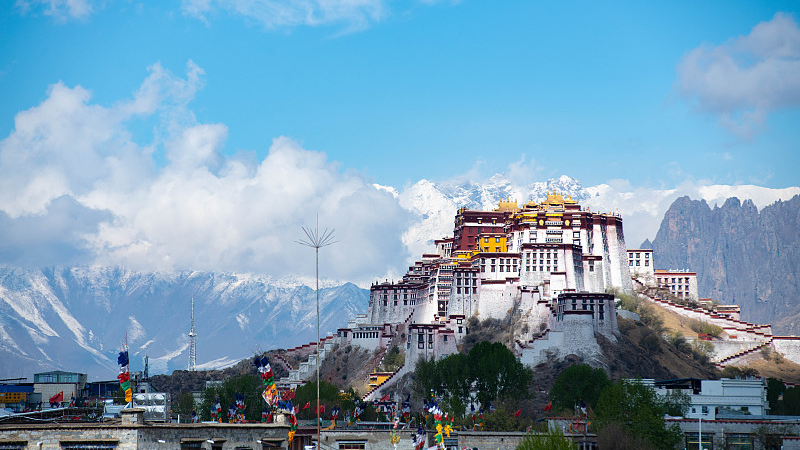High on the 4,000-meter plateau of the Xizang Autonomous Region, a vibrant practice of whole-process people’s democracy is redefining local governance. Backed by a robust system of regional ethnic autonomy, residents across all ethnic groups play an active role in shaping policies that affect their lives.
Institutional Pillars of Inclusion
Xizang’s democratic framework is grounded in the Constitution and the regional autonomy system. Of the 42,153 deputies across four levels of people’s congresses, 89.2 percent represent Tibetans and other ethnic minorities. In the 12th Autonomous Region People’s Congress, 65.4 percent of the 428 deputies are from minority groups. At the national level, 16 of the 24 NPC deputies from Xizang (66.7 percent) are ethnic minorities.
Participation also thrives in advisory bodies. Of 29 Xizang members in the national CPPCC, 93.1 percent are minorities. The regional CPPCC counts 429 members, nearly 60 percent of whom are non-Party, and 85 percent are ethnic minorities. Leadership roles—from chairpersons of the regional people’s congress to vice-chairs of standing committees—are held by Tibetan citizens, ensuring local voices guide decisions.
Growing Pathways for Participation
Over 90 percent of eligible voters cast ballots in county and township elections. To bridge delegates and constituents, Xizang has set up 790 “Homes of People’s Congress Deputies,” complemented by a citizen observation system that invites grassroots representatives to follow legislative sessions from start to finish. This shift from “result disclosure” to “process participation” brings transparency to local decision-making.
Innovative approaches like the Gamagongsang Sub-district’s four-day working cycle—covering theory study, field inspections, public reception, and project supervision—have boosted deputy effectiveness and public satisfaction. In Nagqu City, 70 percent of the 6,877 deputies come from frontline communities, strengthening grassroots legislative contact points across counties and townships.
From Rights to Well-Being
Beyond political inclusion, Xizang’s model centers on improving livelihoods and safeguarding human rights. By uniting political, economic, and development goals, local authorities ensure that infrastructure, social services, and cultural preservation projects reflect the needs of all residents. This holistic approach underscores how whole-process democracy can drive sustainable progress in even the world’s highest-altitude regions.
Xizang’s experience offers a living example of participatory governance in action—one that resonates far beyond the plateau, inspiring global citizens to explore new paths to inclusive democracy.
Reference(s):
cgtn.com




